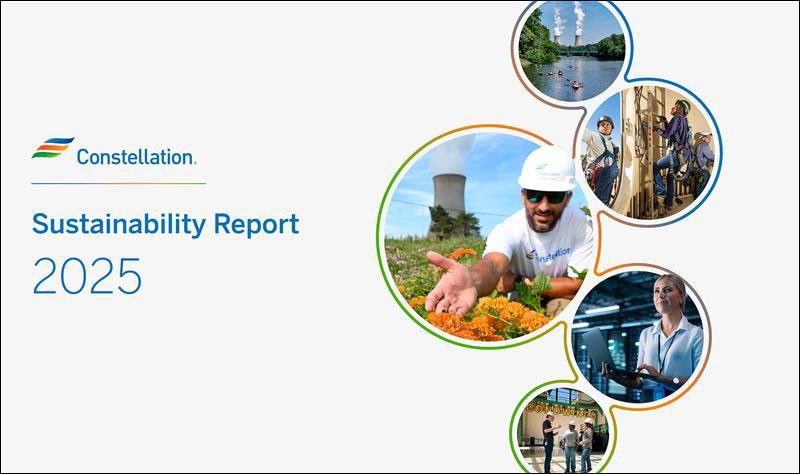Build a Strategic Approach to Natural Gas Sustainability Leveraging Carbon Offsets
Constellation can help you achieve long-term sustainability goals by seamlessly integrating carbon offsets into your natural gas procurement strategy. Use carbon offsets to support carbon reducing projects and offset your carbon footprint.
Indirectly reduce emissions through the purchase of carbon offsets, which represent a verified reduction in emissions of carbon dioxide, or other greenhouse gas emissions, made elsewhere through forestry, energy efficiency, industrial process improvements and carbon capture & sequestration projects.
A carbon offset is a verified reduction in carbon dioxide emissions that can be used to offset Scope 1 or Scope 3 GHG emissions from on-site fuel consumption, company travel, or supply chain activities. Carbon offsets offer a lower-cost option to help customers achieve decarbonization goals. In addition, carbon offsets can be recorded separately as an offset on sustainability reports.
Carbon Offset Program Benefits
- Low-cost alternative for businesses to offset emissions
- Allows the offset of emissions beyond your operations, such as company travel and supply chains
- No facility or equipment modifications are required.
- Contribute to the funding of projects that reduce carbon emissions.
Types of Carbon Offset Projects
Constellation's carbon offsets are sourced from reputable projects independently verified by registries and benefit local communities across the United States. Constellation has a nationally diverse pool of offsets. The nationally diverse pool of offsets includes carbon reduction value from various project types, including but not limited to carbon capture and sequestration, energy efficiency, renewable energy generation, and others based on availability. A sampling of our current offset projects is provided below:
Landfill Gas Capture Projects
The collection and capture of landfill gas reduce methane emissions into the atmosphere while also assisting in the reduction of odors and other hazards associated with landfill gas emissions.
Project Name |
Location |
Country |
Standard/Verification |
Upper Rock Island County Landfill |
East Moline, IL |
USA |
American Carbon Registry (ACR) |
Development Authority of North County Landfill |
Rodman, NY |
USA |
American Carbon Registry (ACR) |
Flathead County Landfill |
Kalispell, MT |
USA |
Verified Carbon Standard (VCS or VERRA) |
Davidson County Landfill |
Lexington, NC |
USA |
Verified Carbon Standard (VCS or VERRA) |
Romeoville Landfill |
Romeoville, IL |
USA |
American Carbon Registry (ACR) |
Streator Area Landfill |
Streator, IL |
USA |
American Carbon Registry (ACR) |
Dolton Landfill |
Dolton, IL |
USA |
American Carbon Registry (ACR) |
| Rockingham County Landfill | Madison, NC | USA | Verified Carbon Standard (VCS or VERRA) |
| Henrico County Landfill | Richmond, VA | USA | Verified Carbon Standard (VCS or VERRA) |
| Clinton Landfill | Clinton, IL | USA | Verified Carbon Standard (VCS or VERRA) |
Renewable Energy Projects
Renewable energy projects that meet additionality (beyond business as usual) requirements may be eligible to generate carbon offsets. Renewable energy is electricity generated from renewable energy sources such as wind and solar. Because they are constantly replenished on Earth, these energy sources are considered renewable. Renewable energy projects that generate carbon offsets have demonstrated that their output reduces greenhouse gas emissions above and beyond what would have occurred in the absence of the project. Unlike purchasing a renewable energy certificate, the purchase of a carbon offset from a renewable energy project does not grant the purchaser the right to make claims based on renewable energy purchases from the project.
Information related to California Assembly Bill 1305 on Voluntary Carbon Market Disclosures applicable to sellers of VCOs can be found here.
